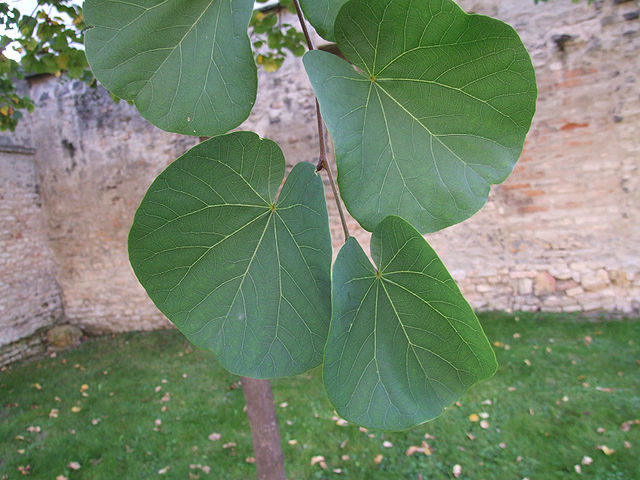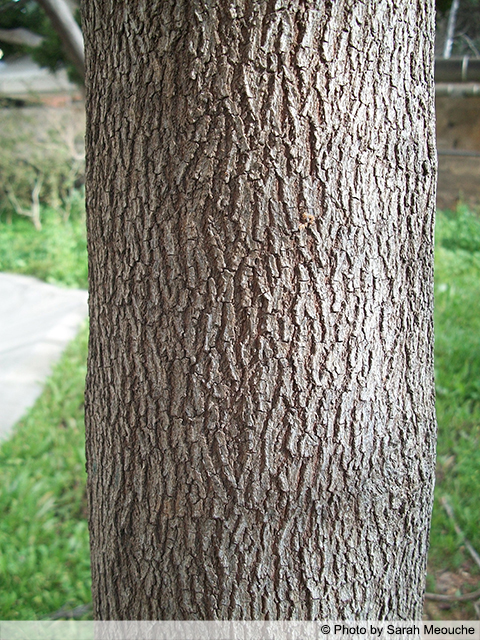Cercis siliquastrum (Judas tree)
The most striking feature of this small tree is its crimsonpinkspring blossoms—hence its Arabic name, Shajar Al Ourjouan.Judas tree is a bushy, deciduous small tree. Beautiful, spreading, multi-stemmed tree.Leaves are heart-shaped turning bronze to burgundy when young, turning yellow in the fall.. Flowers rosy-pink, pea-shaped, in clusters on the older wood. Fruit are long brown pod. Trees start blooming after five years. Although it is not tolerant to air pollution, the Redbud Tree has many useful attributes: it is drought tolerant, and it benefits poor and degraded soils, because it traps nitrogen from the air and incorporates it into the soil, enriching its fertility.
- Landscape Information
- Botanical Description
- Horticulture Management
-
By Jerzy Opioła (Own work) [GFDL (http://www.gnu.org/copyleft/fdl.html) or CC BY-SA 4.0-3.0-2.5-2.0-1.0 (http://creativecommons.org/licenses/by-sa/4.0-3.0-2.5-2.0-1.0)], via Wikimedia Commons
-
By Kousvet (Own work) [GFDL (http://www.gnu.org/copyleft/fdl.html) or CC BY-SA 3.0 (http://creativecommons.org/licenses/by-sa/3.0)], via Wikimedia Commons
-
By Kurt Stüber [1] [GFDL (http://www.gnu.org/copyleft/fdl.html) or CC-BY-SA-3.0 (http://creativecommons.org/licenses/by-sa/3.0/)], via Wikimedia Commons
-
-
-
By Kousvet (Own work) [GFDL (http://www.gnu.org/copyleft/fdl.html) or CC BY-SA 3.0 (http://creativecommons.org/licenses/by-sa/3.0)], via Wikimedia Commons
Search plant on Google
Download as PDF
-
French Name: Arbre de Judée
Arabic Name: زمزريق أثيبي
Pronunciation: SER-sis sil-ee-KWAS-trum
-
Plant type: Tree
-
Origin: Eastern Mediterranean
-
Heat Zones: 7 to 9
Hardiness Zones: 6 to 9
-
Uses: Specimen, Native to Lebanon
-
Size/Shape
Growth Rate: Moderate
Tree Shape: Vase
Canopy Symmetry: Irregular
Canopy Density: Open
Canopy Texture: Fine
Height at Maturity: 5 to 8 m
Spread at Maturity: 5 to 8 meters
Time to Ultimate Height: 20 to 50 Years
-
By Jerzy Opioła (Own work) [GFDL (http://www.gnu.org/copyleft/fdl.html) or CC BY-SA 4.0-3.0-2.5-2.0-1.0 (http://creativecommons.org/licenses/by-sa/4.0-3.0-2.5-2.0-1.0)], via Wikimedia Commons
-
By Kousvet (Own work) [GFDL (http://www.gnu.org/copyleft/fdl.html) or CC BY-SA 3.0 (http://creativecommons.org/licenses/by-sa/3.0)], via Wikimedia Commons
-
By Kurt Stüber [1] [GFDL (http://www.gnu.org/copyleft/fdl.html) or CC-BY-SA-3.0 (http://creativecommons.org/licenses/by-sa/3.0/)], via Wikimedia Commons
-
-
-
By Kousvet (Own work) [GFDL (http://www.gnu.org/copyleft/fdl.html) or CC BY-SA 3.0 (http://creativecommons.org/licenses/by-sa/3.0)], via Wikimedia Commons
Search plant on Google
Download as PDF
-
Foliage
Leaf Arrangement : Alternate
Leaf Venation: Pinnate
Leaf Persistance: Deciduous
Leaf Type: Simple
Leaf Blade: 10 - 20
Leaf Shape: Orbiculate
Leaf Margins: Entire
Leaf Texture: Medium
Leaf Scent: No Fragance
Color(growing season): Green
Color(changing season): Yellow
-
Flower
Flower Size Range: 1.5 - 3
Flower Type: Spike
Flower Sexuality: Monoecious (Bisexual)
Flower Scent: Pleasant (Sweet)
Flower Color: Purple, Pink
Seasons: Spring, Winter
-
Trunk
Trunk Susceptibility to Breakage: Suspected to breakage
Number of Trunks: Multi-Trunked, Can be trained to one trunk
Trunk esthetic Values: Not Showy
-
Fruit
Fruit Type: Legume
Fruit Showiness: Yes
Fruit Size Range: 3 - 7
Fruit Color: Brown
Seasons: Spring, Winter
-
By Jerzy Opioła (Own work) [GFDL (http://www.gnu.org/copyleft/fdl.html) or CC BY-SA 4.0-3.0-2.5-2.0-1.0 (http://creativecommons.org/licenses/by-sa/4.0-3.0-2.5-2.0-1.0)], via Wikimedia Commons
-
By Kousvet (Own work) [GFDL (http://www.gnu.org/copyleft/fdl.html) or CC BY-SA 3.0 (http://creativecommons.org/licenses/by-sa/3.0)], via Wikimedia Commons
-
By Kurt Stüber [1] [GFDL (http://www.gnu.org/copyleft/fdl.html) or CC-BY-SA-3.0 (http://creativecommons.org/licenses/by-sa/3.0/)], via Wikimedia Commons
-
-
-
By Kousvet (Own work) [GFDL (http://www.gnu.org/copyleft/fdl.html) or CC BY-SA 3.0 (http://creativecommons.org/licenses/by-sa/3.0)], via Wikimedia Commons
Search plant on Google
Download as PDF
-
Tolerance
Frost Tolerant: Yes
Heat Tolerance: Yes
Salt Tolerance: Poor
-
Requirements
Soil Requirements: Clay, Loam, Sand
Soil Ph Requirements: Acidic, Neutral, Alkaline
Water Requirements: Moderate, Low
Light Requirements: Full, Part
-
Management
Toxicity: No
Susceptibility to Pests and Diseases: Yes
Pruning Requirements: Little needed, to develop a strong structure
Life Span: More than 50
Diseases: Powdery Mildew, Wilts
Edible Parts: None
Pests: Caterpillars, Scales, Whitefly
Plant Propagation: Seed


